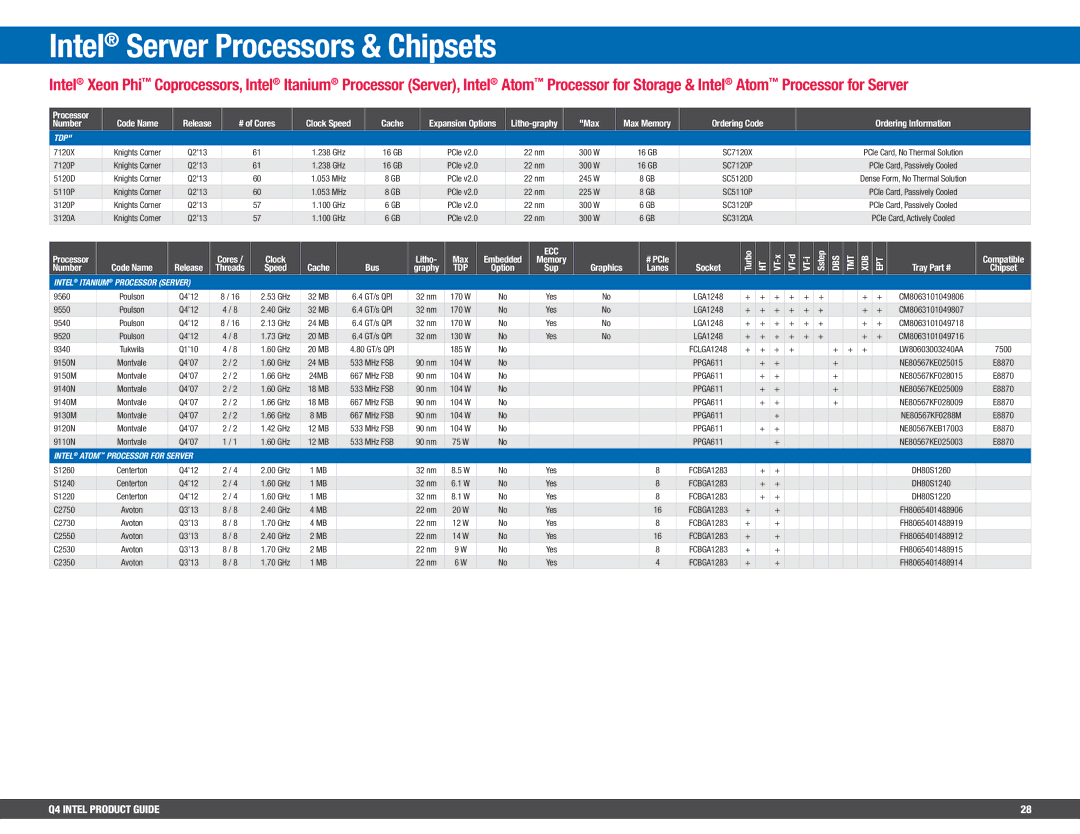BX80647I74800MQ, BV80605001908AK specifications
The Intel BX80647I74800MQ and BV80605001908AK are two CPUs from Intel’s diverse processor lineup, designed to cater to different segments of computing needs.The Intel BX80647I74800MQ is part of the Intel Core i7 family, specifically developed for mobile platforms. This processor features a quad-core architecture, which allows it to handle multiple tasks efficiently, making it suitable for demanding applications like gaming, video editing, and data analysis. With a base frequency of 2.3 GHz and the capability to reach up to 3.7 GHz with Turbo Boost technology, it offers an excellent balance between performance and energy efficiency. The processor is built on the 22nm manufacturing process, which not only reduces power consumption but also improves thermal performance.
One of the key features of the i7-4800MQ is its support for Intel Hyper-Threading technology, allowing each core to handle two threads simultaneously. This significantly enhances multitasking abilities and facilitates smoother operation of resource-intensive applications. Additionally, it boasts a robust 8MB Intel Smart Cache, which improves data access speed and enhances overall performance during demanding tasks.
On the other hand, the BV80605001908AK refers to the Intel Core i5-5005U processor, designed for ultra-thin laptops and energy-efficient devices. This dual-core processor operates at a base frequency of 2.0 GHz, with a Turbo Boost capability of up to 2.8 GHz. Although it contains fewer cores compared to the i7-4800MQ, it is still engineered to provide reliable performance for everyday computing tasks, multimedia consumption, and light gaming.
The Core i5-5005U also integrates Intel HD Graphics 5500, enabling decent graphical performance for casual gaming and efficient video playback. Its power-efficient design results in lower thermal output, making it an ideal choice for portable devices where battery life is paramount.
Both processors utilize Intel's advanced technologies, including Intel VT-x for virtualization, which aids in running multiple operating systems on a single machine efficiently. They also support Intel 64 architecture, enhancing 64-bit processing capabilities and improving overall computing performance.
In summary, the Intel BX80647I74800MQ and BV80605001908AK processors serve distinct purposes within the Intel Core lineup, catering to both mobile computing enthusiasts and users requiring robust performance in ultra-thin systems. Each offers unique characteristics that cater to the diverse needs of modern users, ensuring they remain relevant in an ever-evolving technological landscape.

